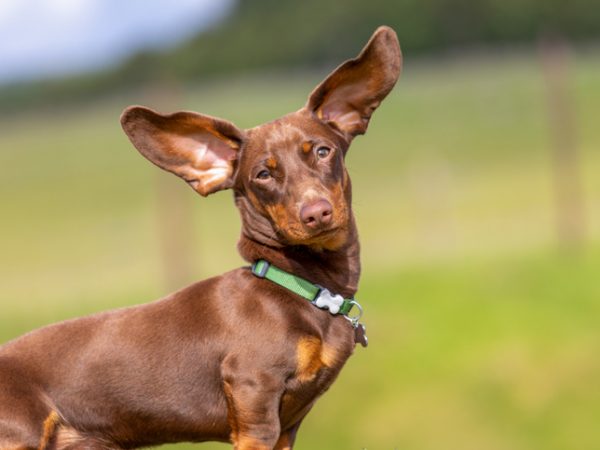If you are wondering why your dog’s ears are always cold, don’t forget to ask yourself other questions like, “what should I do to keep my dogs ears warm”?
Why Are My Dogs Ears Cold?
Table of Contents
There are many reasons why your dog’s ears are cold, for example, poor circulation can cause ears to become icy to the touch. Also, some breeds of dogs have longer ears, which makes them more exposed to the cold air. Subsequently, dogs with short snouts also have their ear canals exposed to the environment.
One Thing You Need To Ask Your Dog Breeder
My Dogs Ears Are Cold, Should I Be Worried?
Cold ears in a dog is not a medical concern by any means; usually, ear chilliness occurs when dogs don’t move around enough. When dogs stay in one position or go outdoors during cold weather (or into a chilly room), their ears simply chill as a result of not moving enough.
To prevent your dog from having achingly cold ears, take note of whether your dog is shivering or if its ears are down. Those are a sign of discomfort in your dog and you might want to take steps to warm up his or her ears.
How Do I Warm Up My Dog’s Cold Ears?
There are a few things you can do to warm up your dog’s cold ears. They include :
- Wrap your dog in a blanket to raise his or her body temperature.
- Warm up the air of the room or area you are in by using heaters or turning up your thermostat.
- Purchase or make fabric headbands and tie around your dog’s head (it helps keep heat in!)
- You can also use a heating pad under thick towels. This will help your dog to raise his body temperature.
After warming up your dog’s cold ears, you’ll need to make sure the inside of their ears don’t become too warm as a result of the heat source. Excessively hot ears can cause skin irritation and ear infections that can be expensive to treat!
Can A Sweater Help Warm My Dog’s Ears?
In addition to giving your dog a coat or sweater during cold weather, you can also use ear muffs for dogs. Dog ear muffs are designed exactly for that – to keep your doggie’s ears warm and cozy at all times, especially when going outdoors.
My Dog’s Ears Are Cold, Are They Sick?
There are a few medical reasons that dog’s ears can be cold, but they are rare. They include:
- Poor Circulation – Usually, poor circulation in the body causes ears to become icy to the touch – resulting in discomfort for your dog. As such, make sure that your canine companion does not stay still for long durations as this can lead to ear chilliness.
- Infection/Inflammation – Ear infections are common in dogs, especially when they spend a lot of time outdoors. The affected ear canal may be red and swollen which results in poor blood circulation. Thus, it is vital to take your dog to the vet if you notice any signs of infection or inflammation.
- Scratching – Cold ears can also occur with dogs who scratch their ears too much. This becomes an issue because they end up injuring their ear canals which leads to possible ear infections or inflammations.
- Genetics – Genetics can also be a factor in why a dog’s ears are cold. Some dogs naturally have more hair on their ears, which is why it is important to make sure that your canine companion does not spend too much time outdoors especially during the winter months.
- Lack of Activity – When dogs stay in one position or go outdoors during cold weather (or into a chilly room), their ears simply chill as a result of not moving enough.
Keep your dog active during cold weather, especially by going outdoors. Also, try to avoid putting him in front of an air conditioner or heater vent because this can lead to rapid temperature changes that can offset his body temperature and make his ears cold.
Can Dogs Get a Cold?
Dogs can get a cold, but it isn’t like the human version of getting sick. It is usually due to environmental factors (living in unsanitary conditions) or lack of activity outdoors that may cause dogs to contract upper respiratory infections which lead to their ears becoming chilly. If this is the case, it isn’t really a “cold” but rather an infection, inflammation or irritation that needs to be treated by visiting your vet.
Can Dogs Go Deaf If Their Ears Get Too Cold?
If your dog’s ears are extremely cold to the point where they are blue in color, there is a chance he may go deaf. This condition could lead to frostbite and it is important to deal with it immediately by taking him to your vet or veterinary emergency room.
What Can I Do if My Dog’s Ears Are Always Cold in the Winter?
Unfortunately, there isn’t much you can do if your dog’s ears are always cold in the winter – other than wrapping him in blankets, putting on a sweater or using earmuffs. Try to make sure that he stays active during the winter months by going outdoors or playing indoors to keep his ears warm.
Do Dogs Need Hair on Their Ears?
My Dog’s Ears Droop When They’re Cold
One reason why their ears might droop is due to the fact that dogs use their ears as a cooling mechanism. Heat escapes through the ears and this is why you will often notice dogs with drooping ears as a result of them not wanting to make their ear canals cold.
Another reason is that dogs protect their ears from any kind of injury or infections that may happen as a result of the snow,
When Should I Take My Dog To The Vet?
You should take your dog to the vet if their ears are extremely cold, especially if the color is deep blue. Also, visit a local emergency clinic if your dog’s ears are fiery red or fill with pus.
If the ears are merely cold and you notice swelling, discharge or any other symptom that indicates an infection or inflammation, you should also visit your vet. If the ears are itchy and full of scabs, consider taking him to the groomer for an ear cleaning.
If your dog’s ears are always cold, check his activity level to see if he spends too much time indoors. Try to make sure he goes outdoors for long periods of time during the winter months or play indoors with him to keep his ears warm.
Finally…
If your dog’s ears are chilled, you usually don’t need to worry. Take note if they are shivering or if their ears are down because those are signs indicating discomfort in your pup, and it might be time to take steps so that his ears warm up.
To stay on top of this issue, make sure that your canine companion doesn’t remain still for too long while outdoors during winter months. Also, get him active by exercising with him or playing with him in the snow.
If he seems to be in pain or discomfort then visit your vet or local veterinary emergency room.


